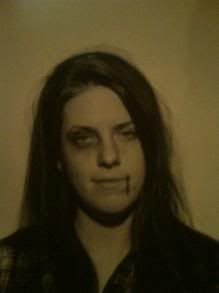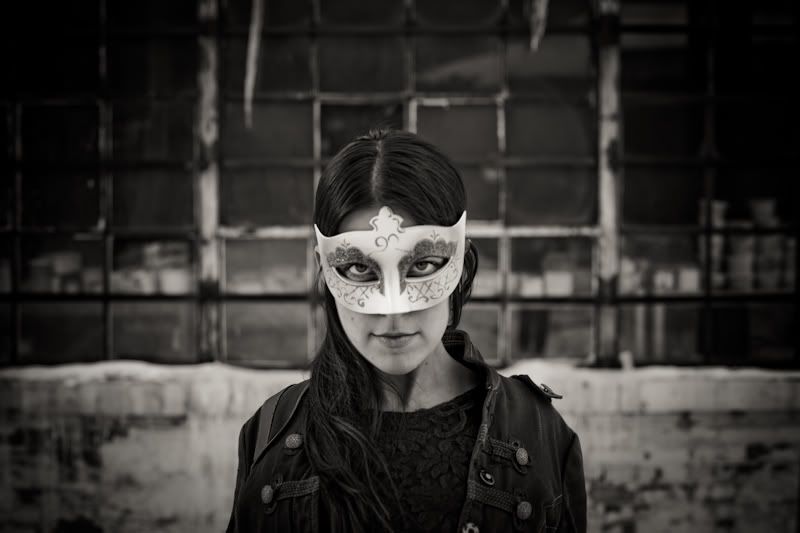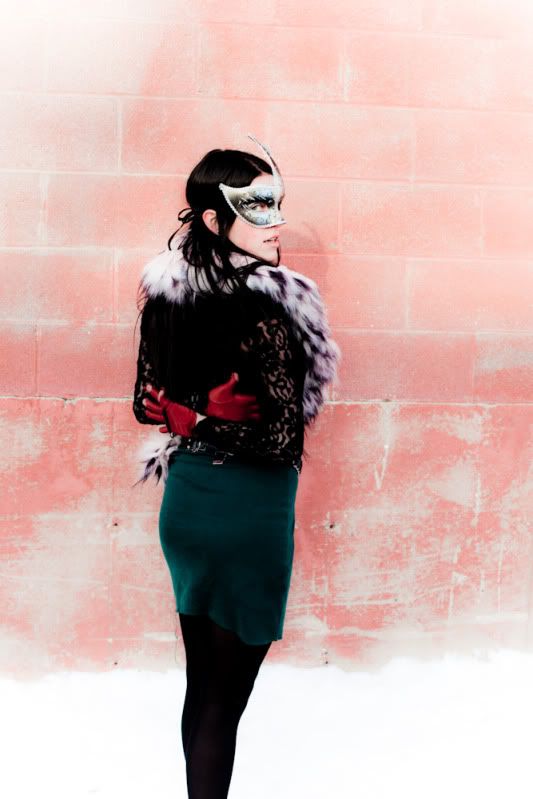"FRIDAY, DECEMBER THE ELEVENTH
TWO FORTY-THREE P.M."
So from the first time I saw this cult classic, I never really was all that interested in Marion Crane.
Norman Bates has always been more my type of 'anti-hero', if you will.

I finally just finished the novel by Robert Bloch and due to a personal recognition of my interest in psychosis, was
pleased to find that the original narrative is primarily told from Norman's point of view. In fact, very little of the
novel's content concentrates on Mary Crane (they changed her name to Marion for the film) or her lover Sam Loomis.
The only other character that is given significant attention besides Norman is Mary's little sister Lila, a driving
narrative force in the novel's second half.
So as not to unnecessarily spoil the plot line, I'll tiptoe around the real subject of Psycho just as Bloch did himself.
When beautiful, young Mary stops to stay at the Bates Motel after stealing $40,000 to support herself and lover Sam,
Norman Bates acquires a slight crush that makes his "Mother" very angry. In reading the novel, I aligned myself with
his character outright. Now, Hitch obviously wanted the thrill of cutting down his beautiful protagonist 20 minutes
into the film knowing that his audiences would be rooting for her from the start, but I enjoyed rooting for middle-aged,
hotel proprietor Norman from the beginning of the novel. He is described as lonely, balding, and fat, which is a far cry
from the film's depiction of the character.
For some reason, the novel's Elmer Fudd description hit me harder than Anthony Perkins' dapper and youthful good
looks. But don't get me wrong, there is nothing that I don't love about Perkins' earnest, funny, awkward and layered
performance as Norman Bates. (Certainly beats Vince Vaughn's in the Gus Van Sant re-make, that's for sure.)
But in the novel, Norman's pudginess actually becomes one of his redeeming qualities, as does his frequent alcoholism
and insecurities from impotence (none of which are touched on in the film). I don't really know why, but I think they
make him more of a tragic, misunderstood figure than a malicious one. After all, he is described as an intellectual
person who fully understands the science behind cryonics and taxidermy and holds copies of Model of the Universe,
The Extension of Consciousness, Dimension of Being, La Bas, and Justine on his decrepit bookshelf. Norman's
impotence, however, destroys any potential for academic success and inevitably drives his twisted relationship with his
mother. Too, his aging and unattractive appearance is the driving force behind this impotence, so handsome Mr.
Perkins just isn't as believable when it comes to sociopathic sexual frustration.
Norman's covert nature is assessed from many different angles that I feel the film generally allots no more than a scene
or two, if not skipping it altogether. For example, Bloch's use of the second person when diverting to Norman's inner
dialogue is the most intriguing aspect of the novel. By having Norman talk to himself saying things like, "You had to see
her again...if you were any kind of a man you would've told her so," Bloch purposely includes his reading audience in
Norman's plight much more personally than he does when writing in the novel's otherwise third person point of view.
He talks to his readers as though they are Norman, much like Hitchcock often had his characters look directly at the
camera as though they were scrutinizing the audience members themselves. Although the film includes Mary's
tormented conscience on her drive to Fairvale, it only once adopts this tricky point of view to delve into Norman's mind
a little deeper--the shot in the very last scene pictured below. I understand that Hitchcock was careful to keep the
entire story a secret, but Norman is an interesting person outside of the over-analyzed shower scene, and he deserved
more internal attention than he was given.
I feel that it is because of Norman's sexual insecurities that the novel is often much more gratuitous than the film
(arguably for reasons other than harsh cinematic censorship). At one point, Norman has a very Oedipal, French New
Wave dream sequence of his mother sinking nude into a swamp as his own awareness becomes attuned to the fact that
it is actually he who is sinking below the surface. He admits feeling guilty for gazing upon his mother in this way and
wishes that the temptation would leave him while still holding on to the hope that "Mother" never will. In Norman's
conversation with Mary he defends his mother saying, "I think perhaps all of us go a little crazy at times."
And it's true. We do.
Which is why Bloch used the second person to speak directly to his audience: to show that we are all all exactly like
Norman. A humanity that struggles with insecurity, bitterness, self-awareness (or lack thereof)...
"Talk about not knowing other people--why, when it came right down to it, you didn't even know yourself."
And that's why I found myself wanting a happy, bluegrass ending for Norman; an ending that didn't involve the
consequences of the traumatic event that made him the way he was...because we all have our own baggage in so many ways.
I guess I'm just attracted to jaded and confused characters, hence my empathy for:
1. Dexter
2. Arthur Mitchell (an extreme irony because the end of Psycho makes reference to an "Unholy Trinity." Hmm, wonder
where the Dexter writers got the idea for Mitchell's nickname...)
3. Tara (United States of Tara)
4. Teddy Daniels (Shutter Island)
5. Malcolm Rivers (Identity)
6. even Phillip Garrido, and he certainly is not fictional.
It's funny, in the 'making-of' portion of Hitch's Psycho, screenwriter Joseph Stefano decided that if Norman Bates were
a portrait he'd have been painted by Edward Hopper, a man known for a childhood dominated by women and
paintings dominated by placid scenery.

Stefano's claim makes sense because both Momma's Boy Norman and his home have the same placid appearance as
Hopper's painting at first glance...

...if only Norman and the rest of us were truly as peaceful as we came across.



























